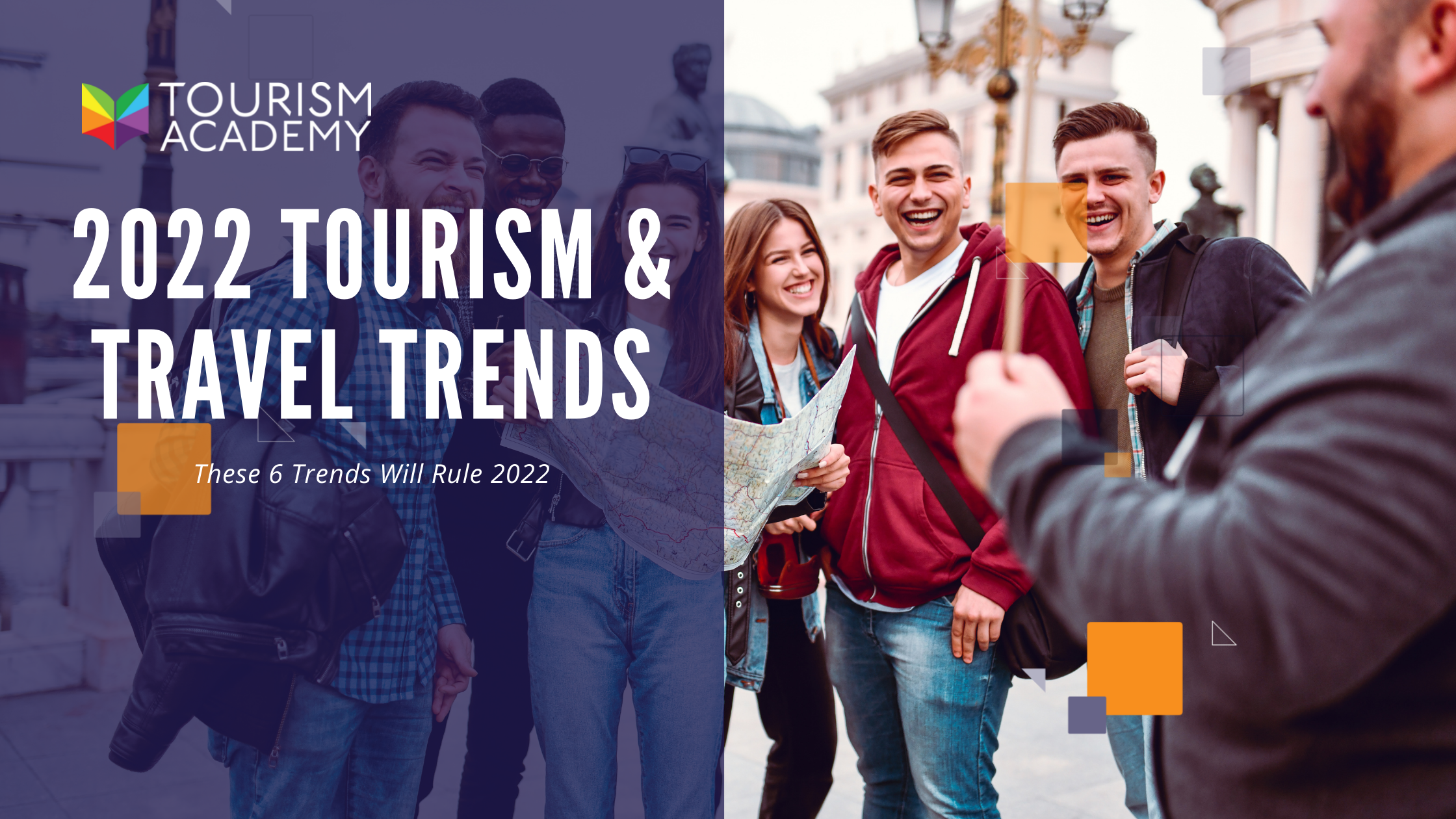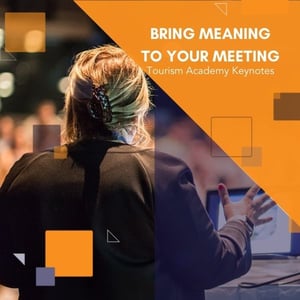
These Six Tourism Trends Will Rule 2022
At the beginning of every year, tourism forecasters the world over put together expensive reports predicting what the future will bring. I read hundreds of predictions and talk with dozens of industry leaders every year. So, what do these speculators think the next few years hold?
Many of the themes are predictable: automation, artificial intelligence, climate crisis, virtual reality and augmented reality, China’s rising power, cryptocurrencies, Zoom, remote work and people fighting for their rights.
RELATED: 2022 Tourism Trends & Outlook
RELATED: U.S. Travel & Tourism Statistics 2020-2021
What do these 2022 Tourism Trends mean?
 The travel industry faces a different sort of turbulence than we’ve become used to. Change is coming at us from every possible direction. Here are just a few of the trends we can expect to see shaking our cages in 2022.
The travel industry faces a different sort of turbulence than we’ve become used to. Change is coming at us from every possible direction. Here are just a few of the trends we can expect to see shaking our cages in 2022.
Tourism Trends 2022.
Expertise is in demand
Plenty of group leaders, teachers, and novice travel planners found themselves lacking the expertise, resource and knowledge to handle rapidly changing rules, regulations, policies and restrictions. To avoid this sort of stress and frustration, many of these planners (and the organizations they work for) are now insisting that their trips be planned by professional tour operators and travel agencies.
“People are more willing to pay for ‘expertise’ because they don’t want to be on the hook for everything if the boat sinks.” - Keith Snode, Group Travel Odyssey
Empathy and personalization
At the beginning of the pandemic, we saw so many brands talking about ‘being in this together.’ But your messaging needs to go beyond that pat-on-the-back, we-got-this story. Your potential audiences want to envision how your product or service will make their life easier and better as we ease into resuming normal life. They want something they can believe in. Here are a few tips for creating genuine, authentic empathy in your messaging:
-
Messaging that focuses on solutions is empowering and positive. It tells customers they can do it, and you can help.
-
Using plain language in your content makes it more believable and relatable. Be sure you’re not hung up on “marketing speak” and technical jargon.
-
Choose active words that elicit emotions. Inspire. Imagine. Engage.
-
Think about creating conversations, not just shouting at your customer. In conversations you know the person’s name, you may be able to reference a specific need or discuss a topic you have in common.
Empathy is about walking a mile (or more…) in your customer’s shoes. Watch how they shop and interact with your products. Learn from them. If you can think like your customer, chances are you’ll create a connection.
RELATED: Finding The Right Speaker For Your Meeting
Work from home policies
Working from home has become an efficient way for businesses to operate and manage overhead. Now that people are working from home, it will never go back to the way it used to be; geographic requirements around talent acquisition will loosen.
Income and economic resources have shifted from city centers to the suburbs & rural areas. This brings added opportunity for those businesses who see this as a target audience.
RELATED FREE COURSE: Work Better/Live Happier - Working From Home Effectively
Price compression
Price Compression is an explanation for market bubbles. It’s a pinch situation. Lower inventories, vendors struggling to recuperate losses, demand spikes, and market uncertainty all converge to drive prices up and options down. Travelers who have very fixed departure dates will feel this more than those who can shift plans to off-peak or shoulder periods.
“We’re seeing so many hotels that remain closed; the other hotels with rooms left to sell can raise their rates. It comes down to basic supply & demand. Demand is there on the domestic front. We’re seeing second tier cities commanding rates that we once only saw in New York City. Add to that - inflation. We’re educating operators to not expect the same rates they saw in 2019. The supply chain is under super-pressure and that honeymoon period is over.” - Robert Miller, TravelAdvocates
Breakdown of traditional education paths
As the pandemic interrupted schooling for millions, new relationships to online learning began to flourish. The weight of student debt and continued class conflict draw people away from the traditional path of college education. We can expect to see a rise in solution-based, on-demand online training, like the courses offered at tourismacademy.org. Training that is more concise, targeted and efficient will lead professional development.
RELATED: Tourism Ambassador Certification
Diversity, Equity, and Inclusion
Many workplaces today focus on DEI instead of D&I. DEI stands for Diversity, equity, and inclusion.
Equity has become just as crucial as D&I in several global companies.
Equity in the workplace refers to fair and impartial processes and outcomes for each individual in the company.
To ensure fair and impartial processes and outcomes, leaders and employers need to be mindful of the challenges, barriers, and advantages at play for everyone at any given point in time.
Equity is the reminder that not everyone starts at the same level playing field, and so swift and vigilant action is paramount to building a fair workplace.
RELATED: The Tourism Academy commitment to Diversity, Equity & Inclusion
In conclusion, the takeaway is simple: travel is evolving. Those who are most nimble and able to adapt quickly will capitalize on market opportunities. Share your thoughts and predictions in the comments below.



Leave a comment